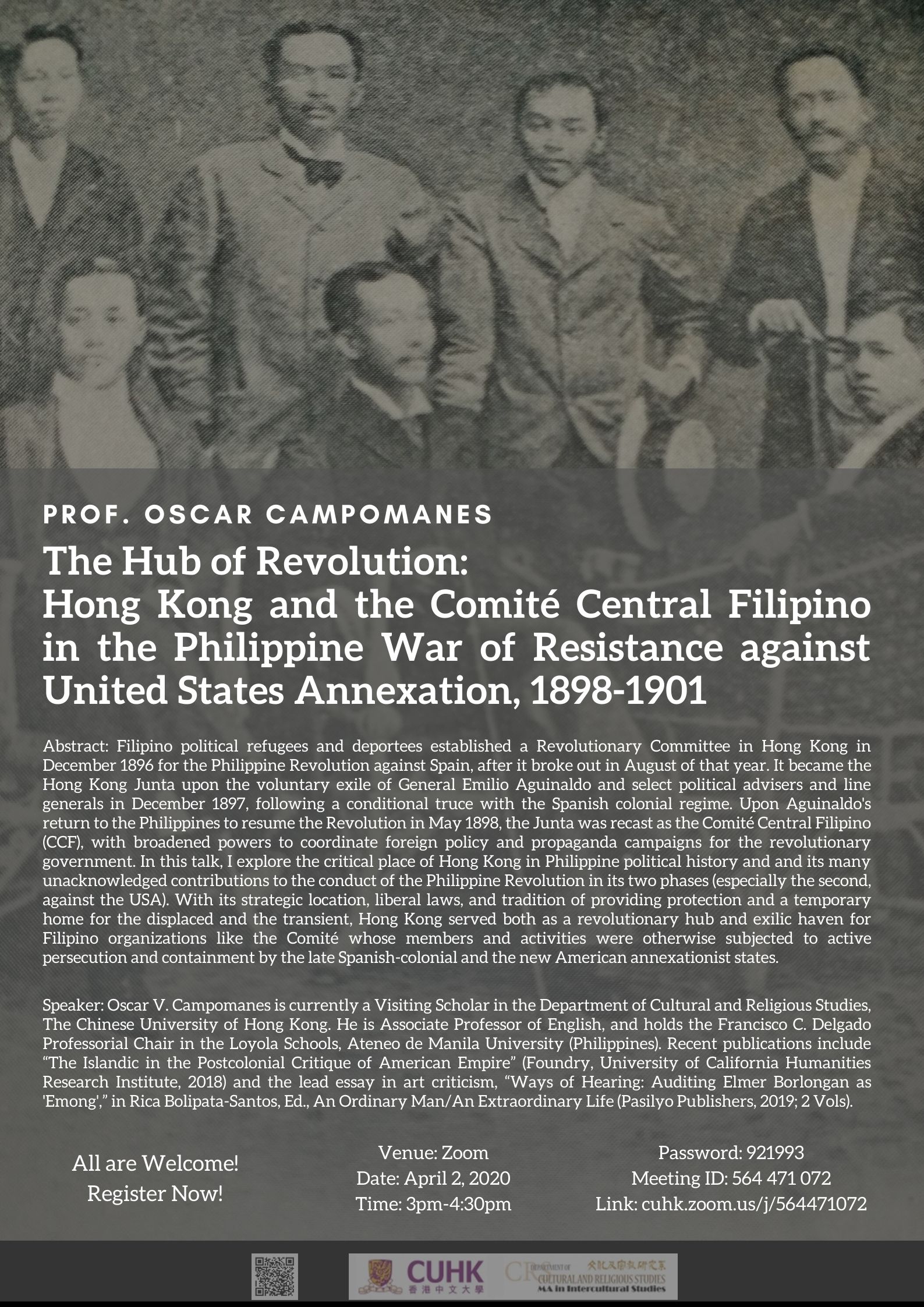Events
The Hub of Revolution: Hong Kong and the Comité Central Filipino in the Philippine War of Resistance against United States Annexation, 1898-1901
2 Apr 2020
3pm-4:30pm
On Zoom
Prof. Oscar V. Campomanes
Oscar V. Campomanes is currently a Visiting Scholar in the Department of Cultural and Religious Studies, The Chinese University of Hong Kong. He is Associate Professor of English, and holds the Francisco C. Delgado Professorial Chair in the Loyola Schools, Ateneo de Manila University (Philippines). Recent publications include “The Islandic in the Postcolonial Critique of American Empire” (Foundry, University of California Humanities Research Institute, 2018) and the lead essay in art criticism, “Ways of Hearing: Auditing Elmer Borlongan as ‘Emong’,” in Rica Bolipata-Santos, Ed., An Ordinary Man/An Extraordinary Life (Pasilyo Publishers, 2019; 2 Vols).
mingruiwen@cuhk.edu.hk
Filipino political refugees and deportees established a Revolutionary Committee in Hong Kong in December 1896 for the Philippine Revolution against Spain, after it broke out in August of that year. It became the Hong Kong Junta upon the voluntary exile of General Emilio Aguinaldo and select political advisers and line generals in December 1897, following a conditional truce with the Spanish colonial regime. Upon Aguinaldo’s return to the Philippines to resume the Revolution in May 1898, the Junta was recast as the Comité Central Filipino (CCF), with broadened powers to coordinate foreign policy and propaganda campaigns for the revolutionary government. In this talk, I explore the critical place of Hong Kong in Philippine political history and and its many unacknowledged contributions to the conduct of the Philippine Revolution in its two phases (especially the second, against the USA). With its strategic location, liberal laws, and tradition of providing protection and a temporary home for the displaced and the transient, Hong Kong served both as a revolutionary hub and exilic haven for Filipino organizations like the Comité whose members and activities were otherwise subjected to active persecution and containment by the late Spanish-colonial and the new American annexationist states.
Organiser: MA in Intercultural Studies, CUHK
All are welcome! Register Now!


